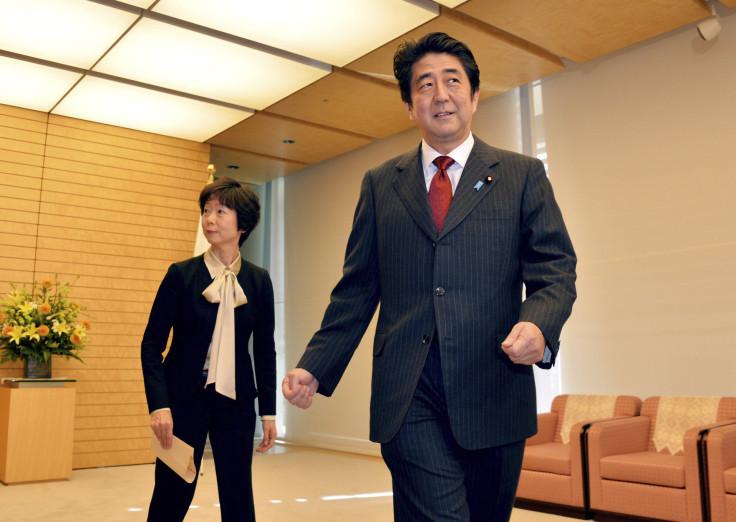Japan Aims To Boost Economy With $181 Billion Stimulus Package Ahead Of Sales-Tax Hike

Japan's government is planning to launch an 18.6 trillion yen ($181 billion) economic package this week, in its latest attempt to drive economic recovery, ahead of a planned sales-tax hike in April.
The measure is the latest in Prime Minister Shinzo Abe's stimulus offensive to generate growth and pull the nation’s economy from a two-decade long deflation. His measures, combined with an unprecedented adoption of loose monetary policy by the Bank of Japan, have led to a steep depreciation of the local currency, spurred exports, and helped the world’s third-largest economy grow in recent quarters.
The primary measures, due to be announced on Thursday, include 5.5 trillion yen in fiscal spending and will offset the impact the national sales-tax hike is expected to have on consumer spending, Reuters reported, citing sources.
The headline value of the new measure makes it the second-largest stimulus measure announced by Abe after a 20-trillion-yen package announced earlier this year. However, this typically includes amounts that the government has already spent, and economists point out that fresh spending could be much lower than the headline figure.
“It doesn’t affect my view on the economy,” Yasunari Ueno, chief market economist at Mizuho Securities, told Bloomberg News. “The size of the actual spending remains at 5.5 trillion yen.”
The new measures include 10 trillion yen in loans to small- and medium-sized companies from government-backed lenders, and spending by local governments and corporations, the Nikkei newspaper reported.
The new stimulus intends to boost growth by spending on measures to enhance competitiveness, on reconstruction projects related to the March 2011 earthquake and tsunami, and on building infrastructure for the 2020 Tokyo Olympics.
The planned package does not require the government to sell any fresh bonds, as the measures will be funded by tax revenue surpluses and unspent funds from other accounts, Reuters reported.
© Copyright IBTimes 2025. All rights reserved.





















